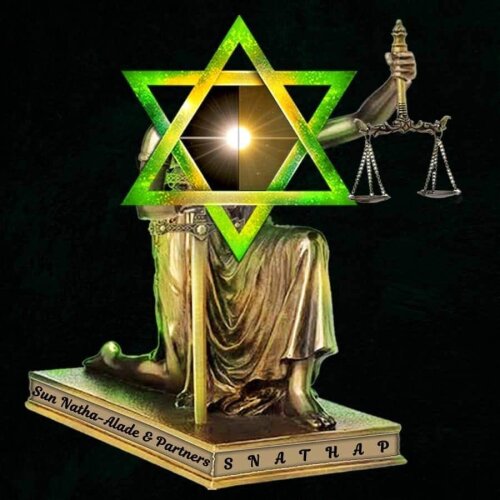Best Faith-Based Law Lawyers in Ibadan
Share your needs with us, get contacted by law firms.
Free. Takes 2 min.
List of the best lawyers in Ibadan, Nigeria
About Faith-Based Law in Ibadan, Nigeria
Faith-Based Law in Ibadan, Nigeria, encompasses the legal principles and practices aligned with religious doctrines applied in judicial and extrajudicial matters. In Ibadan, the influence of both Islamic and Christian religious tenets is prominent, with Islamic Sharia Law impacting various aspects of civil matters among the Muslim community. Faith-Based Law typically addresses issues like marriage, divorce, inheritance, and other personal matters. Due to Nigeria's deeply rooted religious culture, these laws are observed within a dual legal system that combines both secular and religious regulations, allowing for parallel applications in certain legal contexts.
Why You May Need a Lawyer
There can be many situations where seeking legal advice in Faith-Based Law is essential:
- Marriage and Divorce: Individuals undergoing marriage or divorce under Islamic or Christian tenets may require a lawyer to ensure compliance with both religious and state laws.
- Inheritance Disputes: Disagreements over inheritance distribution can arise, particularly when navigating between religious and state laws.
- Child Custody and Adoption: Legal guidance becomes crucial to handle matters of custody or adoption within religious frameworks.
- Contractual Agreements: Drafting and validating contracts for business or personal matters in line with religious beliefs.
- Interfaith Issues: Navigating legal complexities that may arise from the coexistence of parties from different faiths.
Local Laws Overview
Ibadan’s legal landscape allows for the interplay between state laws and religious principles:
- Constitutional Provisions: The Nigerian constitution provides for freedom of religion, which influences personal legal practices.
- Customary and Sharia laws: These operate alongside general law, with Sharia laws being enacted predominantly within Muslim communities.
- Marriage Acts: Marriages in Nigeria may follow civil, customary, or Islamic forms. Each type follows different regulatory obligations.
- Inheritance Laws: Islamic Law impacts inheritance terms for Muslims, while customary practices apply widely.
Frequently Asked Questions
What is Faith-Based Law?
Faith-Based Law refers to legal matters governed by religious teachings. These may include family law, inheritance, and personal disputes.
How does Faith-Based Law operate in Ibadan, Nigeria?
It operates under a dual legal system where religious laws complement or sometimes supersede the secular legal framework in matters of personal law among religious communities.
Can non-Muslims be subjected to Sharia law in Ibadan?
No, Sharia law applies primarily to the Muslim population, particularly in matters of personal law like marriage and inheritance.
What are the key religious laws affecting inheritance?
For Muslims, the laws of inheritance are primarily determined by Islamic Sharia principles, which dictate specific shares to heirs.
Is a Faith-Based lawyer necessary if religious leaders provide guidance?
Yes, legal issues may require the formal backing of a lawyer to ensure compliance with both religious and statutory legal requirements.
Are faith-based marriages recognized by the state?
Yes, marriages conducted under religious laws can be recognized, provided they conform to basic legal conditions under Nigerian marriage rites.
Can religious laws override secular laws in Ibadan?
While they apply to specific personal matters, secular laws hold supremacy in cases of contradiction, especially regarding fundamental rights.
What happens if there is a conflict between state and religious laws?
Courts seek to harmonize such conflicts but typically uphold constitutional principles when there's irreconcilability.
How can one opt for mediation in faith-based disputes?
Mediation is recommended and often facilitated by religious bodies or legal practitioners to resolve disputes outside courtrooms.
Where can I find a lawyer specialized in Faith-Based Law in Ibadan?
Several law firms and legal aid centers in Ibadan have attorneys specializing in Faith-Based Law.
Additional Resources
Here are some resources that might be helpful:
- Ibadan Bar Association: Provides access to legal professionals practicing faith-based and general law.
- National Human Rights Commission: Offers guidance regarding conflicts between faith-based laws and human rights.
- Local Religious Bodies: Churches and mosques often have legal aid committees to assist with faith-based matters.
Next Steps
If you need legal assistance in Faith-Based Law, consider the following steps:
- Identify Your Needs: Clearly define the issue requiring legal consultation.
- Seek Legal Counsel: Contact a lawyer who specializes in faith-based matters for personalized legal advice.
- Gather Documentation: Compile all necessary documents pertinent to your case, including contracts, certificates, and prior legal notices.
- Consult Religious Leaders: Where applicable, involve your religious leaders as they might provide valuable insights or support.
- Mediation Over Litigation: Consider mediation as a first line of resolution, as it is often less confrontational and aligns with religious reconciliation practices.
Lawzana helps you find the best lawyers and law firms in Ibadan through a curated and pre-screened list of qualified legal professionals. Our platform offers rankings and detailed profiles of attorneys and law firms, allowing you to compare based on practice areas, including Faith-Based Law, experience, and client feedback.
Each profile includes a description of the firm's areas of practice, client reviews, team members and partners, year of establishment, spoken languages, office locations, contact information, social media presence, and any published articles or resources. Most firms on our platform speak English and are experienced in both local and international legal matters.
Get a quote from top-rated law firms in Ibadan, Nigeria — quickly, securely, and without unnecessary hassle.
Disclaimer:
The information provided on this page is for general informational purposes only and does not constitute legal advice. While we strive to ensure the accuracy and relevance of the content, legal information may change over time, and interpretations of the law can vary. You should always consult with a qualified legal professional for advice specific to your situation.
We disclaim all liability for actions taken or not taken based on the content of this page. If you believe any information is incorrect or outdated, please contact us, and we will review and update it where appropriate.










